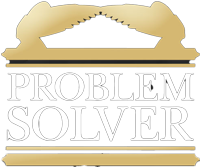Is Mediation Right For Your Dispute?
Mediation – as opposed to arbitration – is a much more collaborative alternative dispute resolution (ADR) method. Often, successful mediation does wonders for those who would like to preserve the professional or personal relationship past the dispute.
I’m Doug Federspiel, and at my office, I help mediation attorneys move their clients through ADR. As a mediator, I work with people in Yakima and across Washington. For over 30 years, I’ve been a commercial dispute lawyer and a judge for any type of civil case. I can help you and your clients pursue a solution.
Specific Advantages Of Pursuing Mediation
Mediation is about working with the other side to meet in the middle – or as close to the middle as the two sides in a major dispute can ever truly get. It’s less expensive than arbitration typically. It’s also seen as kinder and more humane for those involved.
Clients who would pursue mediation have a vested interest in continuing the relationship, which includes:
- Parents going through a divorce
- Business partners disagree over direction
- Agricultural businesses in disputes with distributors or equipment suppliers
If you need to continue working with the other party – if the goal is long-term profitability – mediation is a strong choice.
Why Choose Mediation With Me?
One of the key skills I developed over 30 years of working in the law is creativity. I can find creative, novel solutions to problems and, in mediation, offer these avenues to you and your clients. I relish the chance to work with people and learn about how their problems have manifested.
I designed my office to prioritize the comfort and ease of the groups that come to me. I have separate meeting rooms, each equipped with kitchenettes, bathrooms and other accoutrement to make the place feel secure during breaks in discussions. I have designed my entire practice around the idea that finding the answer to your problem should be comforting.
Let Me Help Solve Your Problems
Solving a problem is an activity that I relish and take immense pride in doing as a mediator. I offer each of the clients who choose my services the full benefit of my experience. I provide options that have a strong legal basis and mutually beneficial results.
Learn more about what I can bring to your dispute case by calling 509-572-9142 or sending an email using this form.

